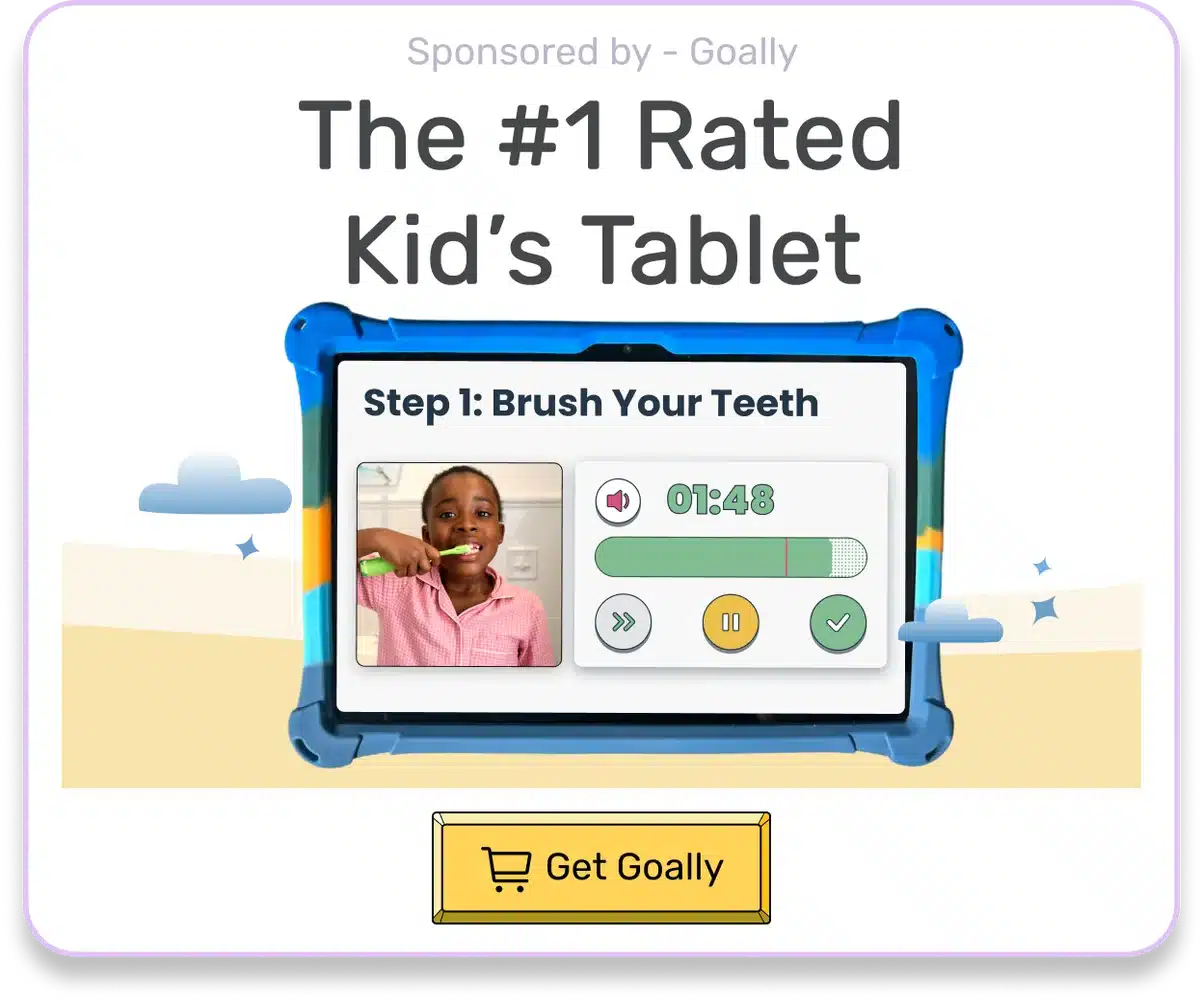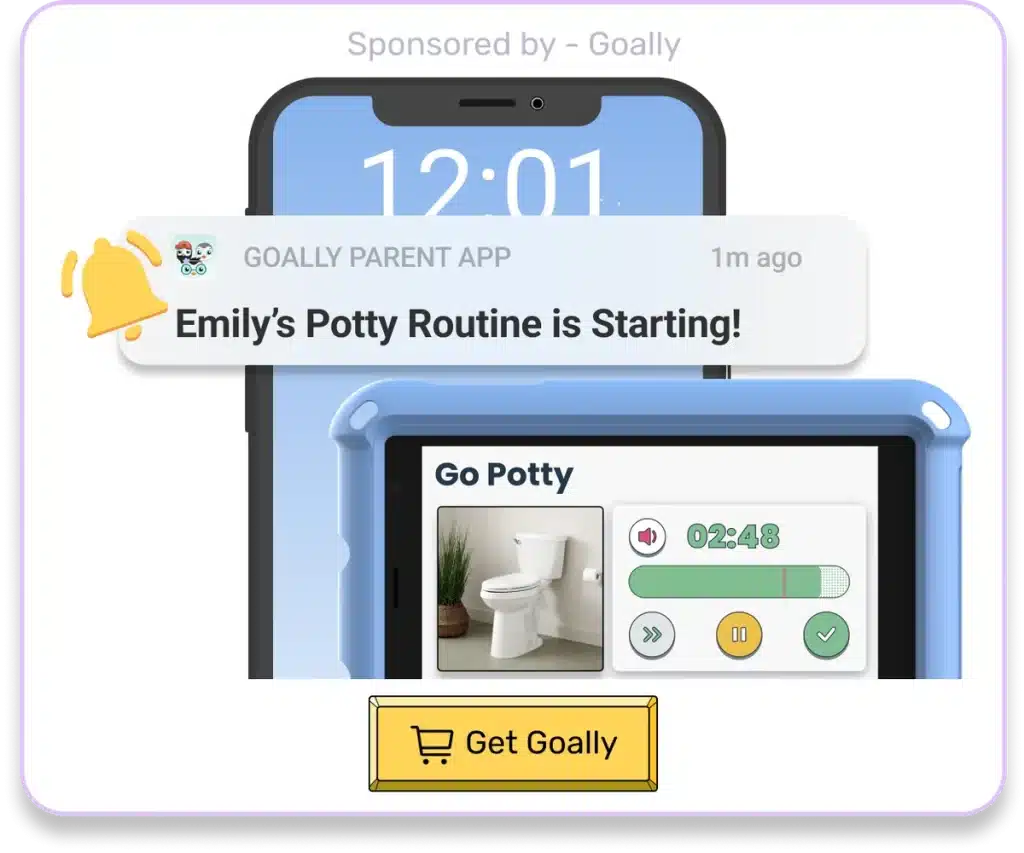As parents, we often focus on nurturing our kids’ long-term memory, but understanding short-term memory is just as important. In neurodivergent children (and neurotypical ones too), short-term memory plays an essential role in everyday life. It’s like a mental sticky note where information is briefly stored, right at the forefront of the mind. Join us as we explore 7 real-life short term memory examples and uncover tips to support your child in these everyday situations.
Table of Contents
1. Repeating a phone number
When someone shares a phone number with you, it’s usually memorized for just enough time to dial or save it. Neurodivergent kids may struggle to quickly recall this information, but with support and practice, they can improve.
In this case, some strategies to help your child include:
- Repeating the number aloud several times.
- Breaking the number into smaller chunks.
- Associating digits with mental images or stories.
Goally | The Safest Tablet for Kids

2. Taking down a shopping list
Short term memory comes into play when jotting down grocery needs before heading to the store. For kids with thinking and learning differences, remembering all the items can be a challenge.
To make this experience easier, consider:
- Writing a physical shopping list or using a digital app.
- Organizing the list in categories, such as fruits, vegetables, and dairy.
- Practicing memory games or techniques to help them remember items.
3. Following instructions in a game
When it comes to games, success often hinges on remembering instructions. Neurodivergent children may find directions harder to retain or follow, which could impact their experience and how they engage with others.
To help your child in this scenario, try to:
- Select games or adapt rules making them simple, clear, and manageable.
- Employ visual aids or prompts when explaining the rules.
- Reinforce directions by repeating them and encouraging kids to do the same.

Read more: How to Improve Short Term Memory in Kids
4. Remembering names after introductions
Recalling names after meeting new people can be a challenge for anyone, but especially those with processing differences.
However, you can help your child by teaching them strategies like:
- Repeating the person’s name during initial conversation.
- Associating the name with a memorable detail or shared interest.
- Using visual cues when possible, like a picture or written name.

5. Memorizing a recipe
Preparing a meal requires short term memory to recall the steps and ingredients. Neurodivergent children may need extra assistance to create a delicious dish and develop confidence in their cooking abilities.
Take these steps to help your child while cooking:
- Keep the recipe easily visible throughout the process.
- Break down instructions into simple, manageable tasks.
- Allow enough time for your child to understand and execute steps.
6. Remembering homework assignments/tasks
Homework assignments vary and often rely on short term memory. Neurodivergent kids may need support when it comes to remembering tasks and organizing their approach.
To support your child, consider:
- Introducing a planner or digital app for tracking assignments.
- Creating a routine to help instill consistency and familiarity.
- Using visual aids, like color-coding or calendars, to improve recall.

Read more: How to Improve Short Term Memory in Kids
7. Retaining information during conversations
During conversations, short term memory plays a significant role in listening, processing, and responding. Your neurodivergent child might need more time to absorb information and engage in meaningful dialogue.
When conversing with your child:
- Practice patience and allow time for processing.
- Create a safe space where repeating or clarifying is encouraged.
- Use visual aids or gestures to reinforce understanding.
Goally | Routines that Actually Work
Goally’s skill building tablet for kids has routines that break down large tasks into small, achievable steps. It helps kids complete their tasks independently!

Create custom routines with your own videos & pictures for every step. The steps come in small, bite-sized pieces to help your child learn the little fundamentals (like putting the toothpaste on their toothbrush!) to achieve bigger goals. And that’s just the beginning. See it in action:
Wrapping Up: Understanding Short Term Memory Examples
Grasping short term memory examples helps us support our neurodivergent children as they make their way through daily life. By embracing these examples and implementing helpful strategies, we can create a nurturing environment where our kids feel at ease and empowered to learn, grow, and revel in their uniqueness. Keep these scenarios in mind and foster a brighter future for your child.
This post was originally published on 05/26/2023. It was updated on 12/20/2023.

Goally
We help parents teach their kids life skills, like doing bedtime and morning independently. Backed by science, we incorporate evidence-based practices and expert-informed designs in all of our apps and content.






